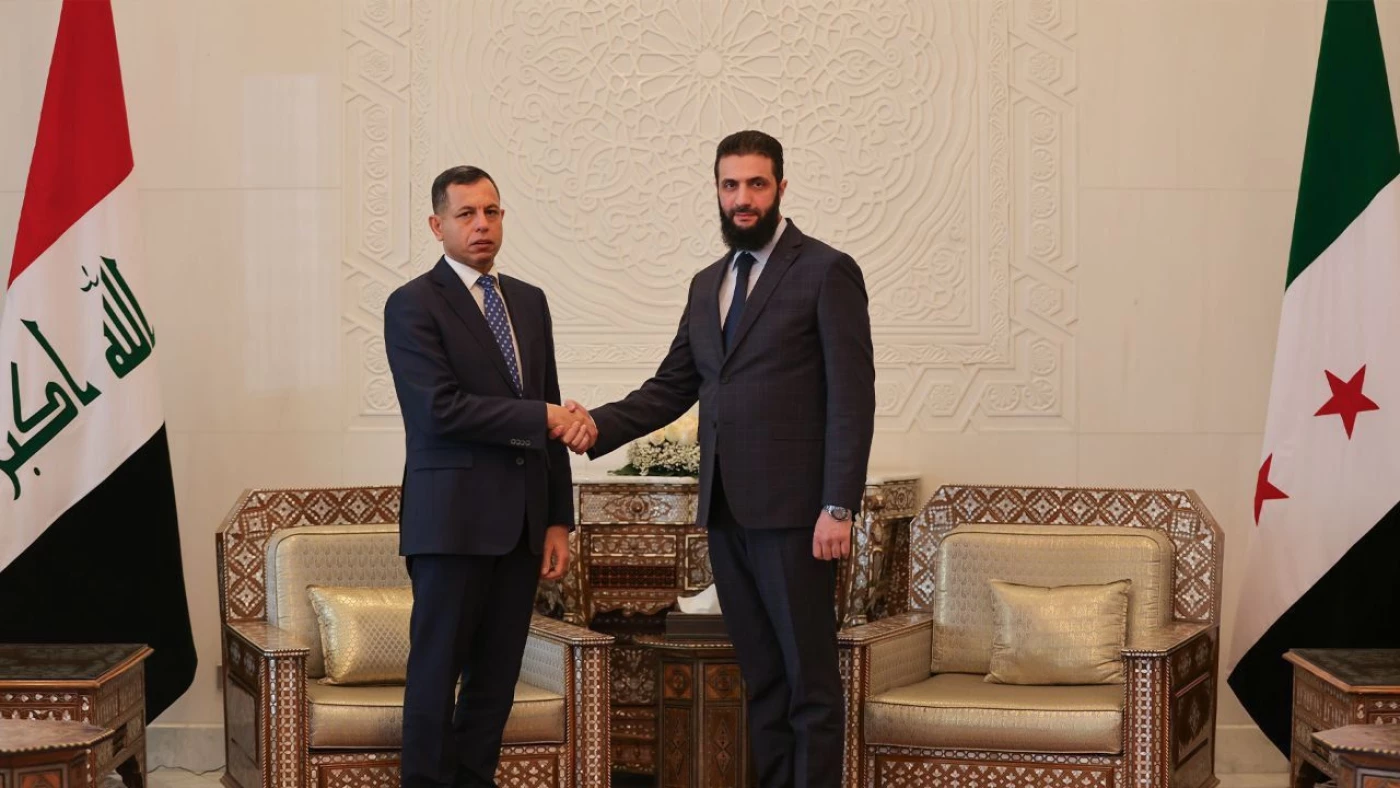The visit of the Iraqi Intelligence Service director, Hamid al-Shatri, to Damascus to meet Syrian President Ahmed al-Sharaa was not merely a protocol stop. This marks his third visit in less than a year, and its frequency is nothing but an indicator that the hidden agenda is far weightier than the official headlines. The official statement spoke of security and trade, but reality suggests more sensitive files that form the core of the new relationship between Baghdad and Damascus.
1. Al-Hol Camp: The Ticking Time Bomb
The file of repatriating Iraqi families from al-Hol camp in eastern Syria represents one of the most urgent matters. The return of hundreds of women and children requires highly precise security and judicial cooperation, as it demands sorting between the innocent and the wanted, then establishing integration and monitoring programs that prevent reproducing an environment for extremism. Here, cooperation transcends the nature of border issues to the level of building joint policies for risk management.
2. Captagon: Testing Damascus’s Credibility
Captagon trafficking dominated the Syrian scene throughout the past decade. Today, with the new authorities’ pledge for a strict crackdown, Iraq becomes directly concerned with monitoring these commitments. The Syrian desert and the Euphrates remain a corridor for smuggling shipments toward Anbar and Baghdad. Without immediate information exchange and field coordination, Captagon will remain a real test of the partnership’s credibility between both parties.
3. Legal Crossings: From al-Qaim to Bukamal
Talk of opening and activating crossings is not merely a commercial matter. It is a step to recalibrate the Iraqi-Syrian corridor, which has long been an outlet for smuggling weapons and goods. Converting this corridor into a monitored legal route opens economic horizons, but at the same time provides a political card for both governments to demonstrate their ability to control borders and collect legitimate resources.
4. Kirkuk-Banias Pipeline: A Project Under Scrutiny
Although not mentioned publicly, the Kirkuk-Banias pipeline file remains present in the meetings. Reviving this oil project grants Damascus an important economic outlet and restores to Baghdad a strategic option for diversifying export outlets. However, regional sensitivities and international sanctions make this file a delicate testing ground for how far both capitals are prepared to venture and maneuver together.
What makes al-Shatri’s third visit to Damascus exceptionally significant is not what was announced, but what was not announced. Al-Hol, Captagon, the crossings, and the Banias pipeline are the four files that will determine whether Iraqi-Syrian coordination can transform from symbolic meetings into practical partnership. These files reveal that the relationship between Baghdad and Damascus is no longer governed only by neighborhood considerations, but has become tied to the conflicts of drugs, energy, migration, and terrorism—that is, to the heart of regional balances.


